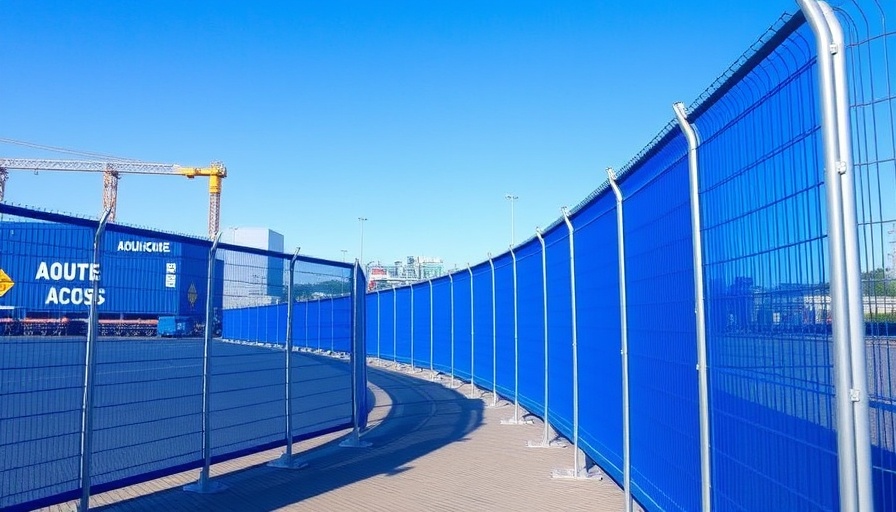
A Temporary Standstill at Alligator Alcatraz: What It Means
In an unexpected turn of events, a federal judge has mandated a temporary halt to construction at the infamous immigration detention center known as "Alligator Alcatraz" located in the heart of the Florida Everglades. The ruling, delivered during a hearing, addresses concerns surrounding the environmental impact of the facility, which faces allegations of endangering sensitive ecosystems.
Although the center can continue to operate and detain individuals for U.S. Immigration and Customs Enforcement (ICE), the construction team is now barred from any new filling, paving, or infrastructure works over the next 14 days. This judgment is a crucial development in the ongoing discussions on balancing immigration policy with environmental stewardship.
Environmental Concerns: The Heart of the Dispute
Environmental groups, alongside the Miccosukee Tribe, argue that the construction poses a serious risk to the delicate wetlands that harbor numerous protected species. The lawsuit claims that the project would compromise billions of dollars’ worth of restoration efforts that have been made to preserve Florida's natural habitats. The significance of this ruling resonates beyond immediate construction delays; it spotlights the critical need for sustainable practices in development initiatives.
Legal Background: Courtroom Dynamics Amidst Advocacy
The courtroom scene is charged, with environmental advocates presenting compelling testimony in favor of the injunction aimed at halting operations and additional construction. Their efforts lay the groundwork for the possibility that this case could set a precedent for how environmental laws are applied in the context of developments that intersect with sensitive land areas. It emphasizes the intricate relationship between legal frameworks, environmental ethics, and the rights of indigenous communities.
The Bigger Picture: Lessons on Development and Conservation
Ultimately, this case illustrates the pressing need for developers and policymakers to consider ecological impacts seriously. With the ongoing climate crisis and increasing sensitivity around environmental issues, stakeholders must address these concerns proactively rather than reactively. This balance is vital not only for political and legal outcomes but also for fostering community trust and ethical governance.
Take Action: Advocating for Sustainable Policies
As residents of the Suncoast, it’s essential to engage with local representatives about environmental policies affecting our community. Advocate for practices that prioritize sustainability, ensuring that development projects respect both human and ecological needs. We can all contribute to a future where prosperity does not come at the expense of nature.
 Add Row
Add Row  Add
Add 


Write A Comment